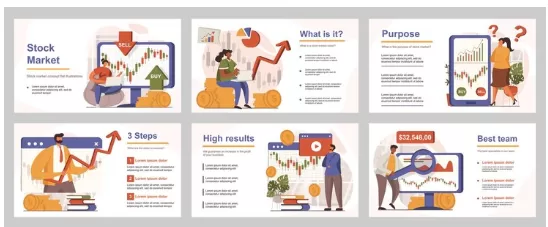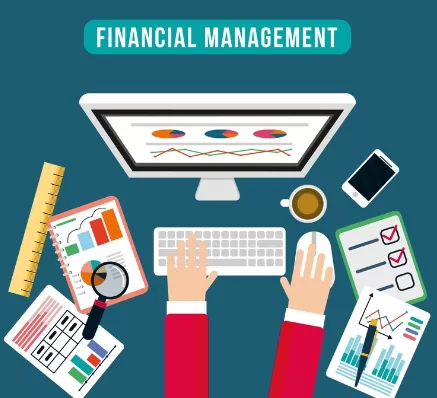Navigating the world of student loans can be overwhelming, especially with the rising education costs. Whether you’re a current student or a recent graduate, understanding how to manage your student loans effectively is crucial for your financial well-being. This guide will provide you with actionable tips for managing your student loans and achieving financial stability.
Table of Contents
Understanding Student Loans
Before diving into management strategies, it’s essential to understand what student loans are. Student loans are borrowed funds that help cover the costs of post-secondary education, including tuition, room and board, textbooks, and other expenses. They come in two primary forms: federal and private loans.
- Federal Student Loans: These loans are issued by the government and typically offer lower interest rates and more flexible repayment options. The main types include Direct Subsidized Loans, Direct Unsubsidized Loans, PLUS Loans, and Consolidation Loans.
- Private Student Loans: These loans are offered by banks or credit unions and usually require a credit check. They may have higher interest rates and less favorable repayment terms compared to federal loans.
1. Know Your Total Debt
The first step in managing your student loans is to know exactly how much you owe. Gather all your loan information, including:
- Total amount borrowed
- Interest rates for each loan
- Monthly payment amounts
- Repayment terms
Understanding your total debt will help you create a realistic repayment plan.
2. Familiarize Yourself with Loan Terms

Each loan may have different terms regarding interest rates and repayment schedules. Familiarizing yourself with these details is crucial for effective management. Key aspects to consider include:
- Grace Periods: Most federal loans offer a grace period of six months after graduation before payments are due. Knowing this can help you plan your finances accordingly.
- Repayment Plans: Federal loans offer various repayment plans such as Standard Repayment, Graduated Repayment, and Income-Driven Repayment plans. Review these options to find one that fits your financial situation.
3. Create a Budget
Budgeting is essential for managing any type of debt effectively. Here’s how to incorporate your student loan payments into your budget:
- Track Your Income and Expenses: Use budgeting apps or spreadsheets to monitor where your money goes each month.
- Allocate Funds for Loan Payments: Ensure that you set aside enough money each month for your loan payments along with other essential expenses.
4. Make Extra Payments When Possible
Paying more than the minimum monthly payment can significantly reduce the total interest paid over the life of the loan. Here are some strategies:
- Apply Windfalls: Use tax refunds, bonuses, or any unexpected income to make extra payments on your loans.
- Target High-Interest Loans First: If you have multiple loans, focus on paying off those with the highest interest rates first to save money in the long run.
5. Explore Loan Forgiveness Programs
If you work in certain fields such as public service or education, you may qualify for loan forgiveness programs:
- Public Service Loan Forgiveness (PSLF): This program forgives the remaining balance on Direct Loans after making 120 qualifying monthly payments while working full-time for a qualifying employer.
- Teacher Loan Forgiveness: Teachers who work in low-income schools may be eligible for forgiveness of up to $17,500 on certain federal loans.
6. Consider Consolidation or Refinancing
If you have multiple student loans, consolidating them into one loan can simplify payments:
- Loan Consolidation: This combines multiple federal student loans into one single loan with a fixed interest rate based on the average of your existing rates.
- Refinancing: If you have private loans or want better terms on federal loans, refinancing can lower your interest rate but may result in losing federal protections like deferment or forgiveness options.
7. Set Up Automatic Payments
Many lenders offer discounts on interest rates if you set up automatic payments from your bank account:
- Convenience: Automatic payments ensure that you never miss a due date.
- Interest Rate Discounts: Some lenders provide a small percentage off your interest rate as an incentive for setting up automatic payments.
8. Utilize Tax Deductions
The IRS allows borrowers to deduct up to $2,500 in student loan interest from their taxable income:
- Eligibility: You must meet certain income requirements to qualify for this deduction.
- Claiming the Deduction: Keep track of the interest paid during the year; your lender should send you a Form 1098-E detailing this information.
9. Stay Informed About Your Loans
Regularly monitor your loan status and stay updated on any changes in policies or repayment options:
- Contact Your Loan Servicer: If you’re unsure about anything related to your loans or repayment options, don’t hesitate to reach out to your servicer for clarification.
- Review Annual Statements: These documents provide important information about your remaining balance and payment history.
10. Seek Help if Needed
If managing your student loans becomes overwhelming:
- Financial Counseling Services: Consider speaking with a financial advisor who specializes in student debt management.
- Nonprofit Organizations: Many organizations offer free resources and counseling services aimed at helping borrowers manage their student debt effectively.
Frequently Asked Questions (FAQ)
1. What should I do if I can’t make my loan payment?
If you’re struggling to make payments, contact your loan servicer immediately. They may offer deferment or forbearance options based on your circumstances.
2. Can I pay off my student loans early without penalties?
Most federal student loans do not have prepayment penalties; however, check with your lender regarding specific terms associated with private loans.
3. How can I find out if I qualify for loan forgiveness?
Visit the Federal Student Aid website or contact your loan servicer to learn about eligibility requirements for various forgiveness programs.
4. Is it better to consolidate my federal loans?
Consolidation can simplify payments but may also extend repayment terms and potentially increase total interest paid over time. Evaluate all options before deciding.
5. What happens if I default on my student loans?
Defaulting can lead to severe consequences including damage to your credit score, wage garnishment, and loss of eligibility for further federal aid.
Conclusion
Managing student loans effectively requires organization, planning, and informed decision-making. By following these tips—understanding your debt, creating a budget, exploring repayment options, and seeking assistance when needed—you can take control of your financial future and work






